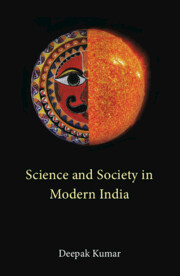3 - Lost in Religion and Translation
Published online by Cambridge University Press: 23 May 2023
Summary
The time is now arrived, when every nation must either rise in the scale of civilization, or sink in the depths of contempt and misery. Prosperity in this age appears to be a term synonymous with civilization and the cultivation of the arts and sciences. Indeed, in every age they have been so more or less, but in the present their dependence on one another is too palpable to be overlooked by the most superficial observers. Let us only consider the pre-eminence to which England has arrived by the diffusion of knowledge among her inhabitants. Her astonishing machineries which have multiplied her means of acquiring wealth to an inconceivable degree, owe their origin to the cultivation of the arts and sciences. Is it not owing to the power which knowledge has given to the people of so small and so distant a country as England, that they have been enabled to conquer and keep possession of these vast territories far more congenial to the prosperity of the human race than the sterile soil of England? Why is it thought the most extravagant dream to impose that India should ever conquer England?
—The Bombay DurpanIn Chapter 1 we have seen that pre-colonial India was no tabula rasa. It had a vigorous tradition at least in the realms of mathematics, astronomy, and medicine. But gradual colonization made a big dent. It brought forth a massive cultural collision which influenced profoundly the cognitive and material existence of both the colonizer and the colonized. This encounter was initially disturbing, even agonizing. Gradually, relations stabilized and the colonized recipients started examining what was living and what was dead in their system, and, under the new circumstances, what to accept and what not. A new stage was thus set at the end of the 18th century.
One Mirza Abu Talib visited England at the turn of the century, and wrote glowingly about the literary societies, theatres, mills, iron foundries, and the hydraulic machines that he saw there. Two Parsee visitors, Jahangir Nowrojee and Hirjeebhoy Merwanjee, devoted a full chapter to ‘scientific institutions’ in their travelogue.
- Type
- Chapter
- Information
- Science and Society in Modern India , pp. 50 - 71Publisher: Cambridge University PressPrint publication year: 2023



